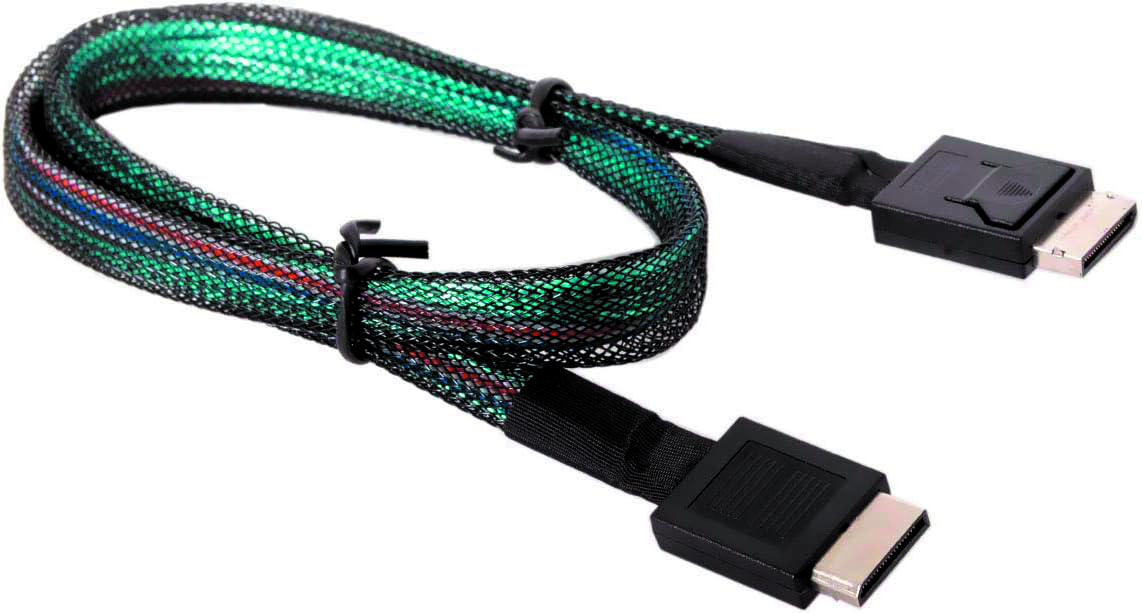Say hello to a potential game changer. Oculink, short for “Optical Copper Link,” is a connection technology that makes it possible to connect outside PCI Express (PCIe) devices to a laptop, mini PC, or gaming handheld. Oculink is a development of the PCI-SIG, the official body for PCI interfaces.
The interface offers a high effective bandwidth of up to 63 gigabits per second, which is particularly suitable for applications and hardware with high data-transfer rates, such as external graphics cards playing video games.
One of the significant advantages of Oculink is its cost-effective implementation. Unlike Thunderbolt, which charges license fees for use, Oculink is open source and therefore allows cheaper production of peripheral devices.
Adapters, docks, and cables can be purchased for a fraction of the cost of a Thunderbolt equivalent. Another advantage lies in the bandwidth: With a speed of 16GT/s (8GB/s total for four lanes), Oculink exceeds the performance of comparable Thunderbolt connections. This is particularly important when using NVMe U.2 drives via a U.2 connection.
The Oculink interface is particularly interesting for eGPUs such as this one from Razer, as it can handle the high data rates that external graphics cards are capable of.
Razer
Nevertheless, Thunderbolt has some advantages, especially in terms of user-friendliness and distribution: Thunderbolt ports are available in many devices and are easy to use. As a rule, they can be used via Plug & Play. The Thunderbolt interface also offers numerous options for setting up an eGPU system, from different housings to hubs and compatible graphics cards.
Further reading: How to install a graphics card
A practical example of the use of Oculink is the GPD G1 dock. It has an AMD Radeon RX 7600M XT graphics card, Thunderbolt 4, and Oculink support. It also has a built-in 240-watt power supply and other various connections. This dock is particularly versatile as it can be connected via both Thunderbolt and Oculink. The better performance is achieved via Oculink.

Oculink is an open source interface and offers even higher data rates than Thunderbolt. The technology may therefore have what it takes to bring about the next revolution in terms of interfaces.
IDG
To summarize, Oculink offers an economical alternative to Thunderbolt with higher bandwidth and lower costs, which makes it particularly attractive for high-performance applications.
The technology has recently gained popularity, although it is not (yet) as widespread as Thunderbolt. Users report fewer errors and problems compared to Thunderbolt, although more configuration effort may be required.
This article was translated from German to English and originally appeared on pcwelt.de.



